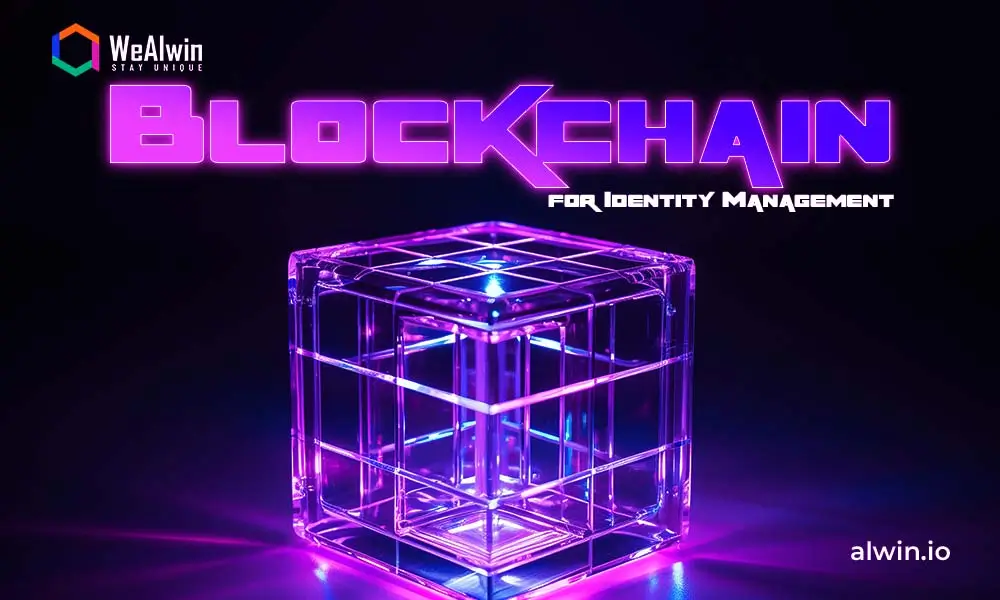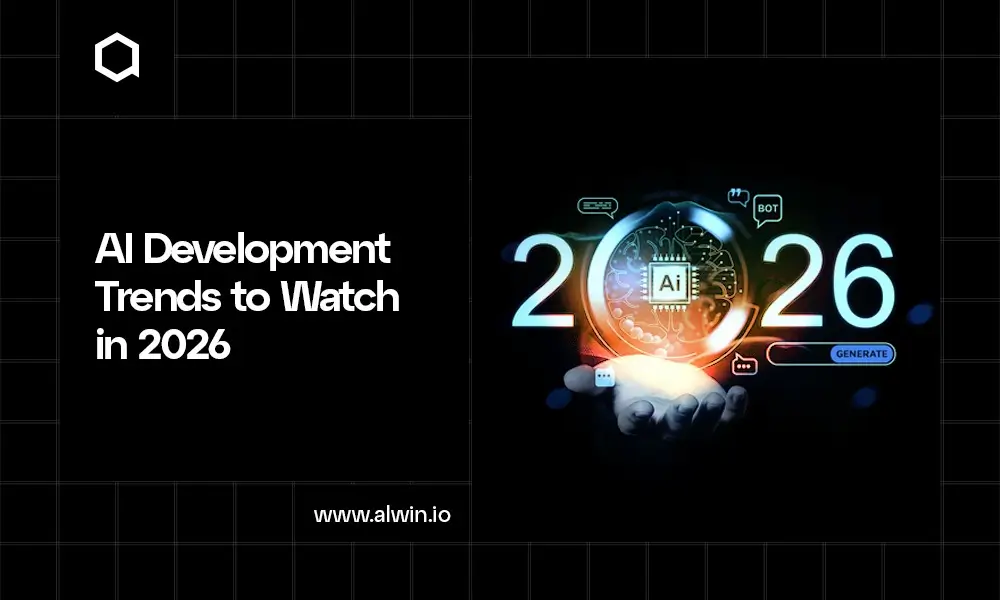Nowadays, both people and businesses need to keep their identities safe online. Many people have experienced digital theft and have been thinking of the right solution to spring up. Blockchain technology is a good way to track who you are and who you know. It's the greatest way to make sure your personal information is safe and secure.
How has Blockchain for Identity Management started and why is it becoming more popular?
Innovators soon realized that blockchain's decentralized nature could solve long-standing issues in identity verification, especially in terms of security, privacy, and trust. Right now, governments, financial institutions, and tech companies are looking into and using blockchain identity solutions. Over 1 billion digital identities are expected to be managed through blockchain platforms in the coming years. Blockchain makes it nearly impossible for hackers to change or steal personal data, which makes it extremely secure.
As we explore the world of blockchain identity management, it is clear that this technology can transform and protect our data.
Blockchain Identity Management
Blockchain identity management is a system where personal identity information is stored and verified on a decentralized, distributed ledger. Unlike traditional systems, blockchain’s decentralized nature makes it difficult for hackers to alter or steal data. With blockchain, identities are self-sovereign, meaning individuals have full control over their personal information and how it’s shared.
In this model, personal data is encrypted and stored on the blockchain. Users can choose to share parts of their identity with different entities (like banks, employers, or healthcare providers) without handing over the entire set of data. This is a more secure, privacy-focused approach to identity verification and management.
As our world becomes more digital, managing identities securely and efficiently has become crucial. Traditional identity systems, which rely on centralized databases, are increasingly vulnerable to hacks, fraud, and data breaches. This is where blockchain technology comes in as a game-changer for identity management.
How Is Blockchain Used in Identity Management?
Blockchain technology offers a secure and decentralized way to store, verify, and manage personal information. Identity systems have traditionally relied on centralized databases, which are susceptible to hacking and misuse. Blockchain eliminates these risks by decentralizing the process and granting individuals greater control over their data.
Here’s how blockchain is used in identity management
Decentralized Identity Verification
Blockchain technology facilitates the generation of decentralized digital identities, commonly referred to as self-sovereign identities. Instead of relying on a central authority, users can manage their identity credentials on the blockchain. This enables them to share solely the essential information with third parties, thereby enhancing privacy and security.
Immutable Records
Blockchain's fundamental attribute of immutability ensures that once identity data has been recorded, it cannot be altered or manipulated. This provides a secure and trustworthy environment for the storage of sensitive personal information, such as government-issued IDs, banking credentials, and medical records.
Enhanced Privacy and Data Ownership
Blockchain technology allows individuals to have complete control over their data. Instead of handing over all their data to a third-party organization, they decide what information to share and with whom. This user-centered model of data ownership gives people greater autonomy and reduces the risk of data breaches.
Multi-Factor Authentication
Blockchain technology can be used to enhance multi-factor authentication processes. It ensures that authentication procedures are distributed and impenetrable to compromise, providing a more secure means of verifying identities without solely relying on passwords.
Streamlined KYC and AML Processes
Blockchain facilitates Know Your Customer (KYC) and Anti-Money Laundering (AML) procedures by securely storing authenticated identity data on a distributed ledger. This information can be quickly accessed by banks and financial institutions, reducing the time and cost of verifying customers while ensuring compliance.
Cross-Border Identity Verification
One of the significant advantages of using blockchain for identity management is its global reach. Blockchain facilitates cross-border identity verification, enabling individuals to establish their identity globally without the necessity of distinct verification procedures in distinct nations.
Cost Efficiency
Reduced reliance on centralized systems and intermediaries can lead to significant cost savings for businesses. Time, effort, and costs associated with traditional verification methods are reduced by the simplified procedure.
Fraud Prevention
Blockchain technology establishes an impenetrable framework for identification management, minimizing the likelihood of fraudulent activities. Every transaction and piece of information is linked to a previous record, making it easy to track down and verify any alterations.
Interoperability
Identity verification can be achieved by using blockchain identity solutions across different platforms and systems. The need for repetitive verification processes can be reduced by maintaining a single, verified identity across multiple services.
Blockchain's utilization in identity management is transforming how we handle personal data, enhancing its security, efficacy, and transparency. Blockchain is helping individuals and businesses better protect their sensitive information in an increasingly digital world by decentralizing identity systems and enhancing privacy.
Various Use Cases of the Blockchain Identity System
Blockchain-powered identification platforms are transforming how individual and corporate identities are managed and verified. By taking advantage of the decentralized, secure, and transparent features of the blockchain, these systems are proving useful across various sectors. Changes to the sector have been brought by including multiple aspects into the blockchain.
Digital Identity Verification
Blockchain can be used to create decentralized digital identities, where individuals have full control over their personal data. Centralized identity verification systems are often vulnerable to hacking and data breaches. The self-sovereign identity on the blockchain allows users to decide what information to share and with whom, making the process secure and private.
Know Your Customer (KYC) and Anti-Money Laundering (AML)
Many industries require KYC and anti-money laundering procedures, particularly in banking and financial services. By securely storing verified customer data on a distributed ledger, the blockchain can simplify and streamline these processes. Once identity data is verified, it can be reused across different institutions without repetitive paperwork, which reduces costs and improves efficiency.
Government Services and Digital Passports
Blockchain technology could transform how governments manage identity systems. Blockchain technology allows governments to issue digital versions of passports, birth certificates, and driving licenses. Border control, public service access, and voting systems can be accelerated by these digital documents.
Healthcare and Medical Records
Medical records can be stored and shared securely using blockchain-based identity systems. Patients are in charge of their health information and can give permission to healthcare professionals or institutions when necessary. This safeguards personal information, safeguards data integrity, and lessens medical mishaps. Patients can share their medical histories with different healthcare providers without having to collect repetitive data.
Supply Chain Management
Supply chain management can use blockchain to authenticate and track products, materials, and suppliers. Transparency and traceability are ensured from production to delivery Quality and safety standards can be ensured by verifying the identity of suppliers in the food or pharmaceutical industry.
Voting Systems
Blockchain technology provides an open and secure platform for electronic voting systems. The creation of a distributed platform can combat voter tampering and ensure that every vote is counted with precision. Blockchain-based identity allows voters to cast their ballots securely, reducing the potential for election manipulation or hacking.
Education and Credential Verification
Degrees, certificates, and diplomas can be issued and verified using the blockchain by educational institutions. Employers or other institutions can easily check these records on the blockchain, reducing the chance of fake claims and speeding up the hiring process.
Cross-Border Identity Verification
Blockchain facilitates international identification verification, enabling individuals to establish their identity anywhere in the world without undergoing multiple verification procedures. This is especially helpful for migrants, refugees, and global travelers, who often face challenges when verifying their identity in foreign countries.
Authentication in IoT Devices
The emergence of the Internet of Things has led to an increasing demand for safe identification management for connected gadgets. Blockchain technology can provide a distributed and safe method for verifying the identities of IoT devices, ensuring that only authenticated devices communicate within a network, enhancing overall security.
Retail and Loyalty Programs
Customer loyalty programs can be enhanced by using blockchain identity systems to create a more seamless and secure experience. Customers can manage their rewards with a secure digital identity when retailers use blockchain to issue and track loyalty points. This creates greater transparency and reduces fraud in loyalty programs.
There are wide-reaching applications across industries for the blockchain identity system. Providing safe, tamper-proof, and decentralized identity management solutions is proving invaluable in areas like banking, medical care, government, and beyond. Blockchain technology will continue to evolve, offering greater efficiency, security, and trust.
Blockchain Role in the Future of Identity
The technology is becoming more popular because it can tackle issues like data breaches, which are on the rise globally. With more companies recognizing the potential of blockchain for identity management, this solution is quickly becoming a mainstream tool for securing identities and protecting personal information.
The demand for secure, efficient, and decentralized identity solutions is increasing. Blockchain-based identity management is being used to protect personal information by governments, businesses, and individuals. According to industry reports, the number of users is projected to reach over 1 billion by 2025.
Blockchain technology is set to transform how we interact in the digital world as its application in identity management continues to evolve. Blockchain will surely play a vital role in securing financial transactions and verifying legal documents.
Wrapping Up
As digital identities become the backbone of our online interactions, blockchain technology is taking center stage in changing how identities are managed. Blockchain is changing industries that rely on trust and verification because of its unparalleled security, distributed structure, and the ability to give control back to users. The need for secure, private, and effective identity management is greater than ever and the blockchain is the perfect answer.
Blockchain will make identity management transparent, tamper-proof and highly efficient. Embracing this paradigm shift now will not only streamline their operations but also build greater confidence in their clients, who will appreciate the degree of control and privacy offered by the blockchain.
At WeAlwin Technologies, we believe in offering future-ready Blockchain Development Services that put you ahead of the curve. Our expert team will help you implement blockchain identity management systems that are not only secure but also scalable to grow your business. Ready to lead the way in digital transformation?



